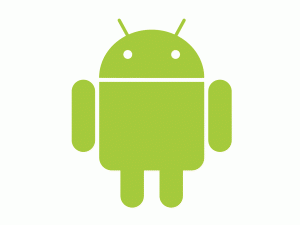FairSearch.org group, a lobby group that counts Microsoft, Nokia and Oracle among its number, has filed a complaint about Google’s Android platform to the European Commission, describing Android as a “Trojan horse” designed to enable Google to “dominate the mobile marketplace and cement its control over consumer Internet data for online advertising as usage shifts to mobile”. We’ve reached out to Google for comment and will update this story with any response.
The Commission is in the midst of investigating Google’s online search practices over concerns of bias so FairSearch — a coalition of tech companies who all compete with Google and its services in some way — is likely hoping to pile additional pressure on at a time when the EC’s Competition Commissioner already has Mountain View on his mind. (In addition, Google is facing enforcement action across Europe for its unified privacy policy which consolidated more than 60 separate privacy notices, linking usage of various different Google services.)
FairSearch’s complaint is that “Google uses deceptive conduct to lockout competition in mobile” — by, specifically, requiring OEMs that use Android to pre-load a suite of Google services and give them “prominent default placement” on the device in order to also get access to “must-have Google apps such as Maps, YouTube or Play”. By doing this, FairSearch argues that Google “disadvantages other providers, and puts Google’s Android in control of consumer data on a majority of smartphones shipped today”, adding that this “predatory distribution of Android at below-cost makes it difficult for other providers of operating systems to recoup investments in competing with Google’s dominant mobile platform”.
Other providers of operating systems of course includes FairSearch member Microsoft and its Windows Phone platform which — unlike Android — is not free for OEMs to use and has failed to make any significant dent in Android’s global smartphone marketshare (though it has made a bit more progress in some European markets such as Italy, according to recent Kantar figures). Nokia also has its own mobile OS which competes with Android at the low end of the phone spectrum (Series 40), and uses Microsoft’s platform for its high end smartphones. Nokia does not use Android.
“Google is using its Android mobile operating system as a ‘Trojan Horse’ to deceive partners, monopolize the mobile marketplace, and control consumer data,” said Thomas Vinje, Brussels-based counsel to the FairSearch coalition, in a statement. “We are asking the Commission to move quickly and decisively to protect competition and innovation in this critical market. Failure to act will only embolden Google to repeat its desktop abuses of dominance as consumers increasingly turn to a mobile platform dominated by Google’s Android operating system.”
FairSearch cites Strategy Analytics data from Q4 2012 that pegged Android’s smartphone share at 70% of global shipments, and eMarketer data covered by Forbes suggesting Google’s dominance of mobile search advertising extends to 96% of the market.
At the time of writing we were unable to reach the Commission’s Competition spokesperson to confirm whether it plans to investigate FairSearch’s complaint — and, if so, whether it might link this complain to its current investigation into Google’s search practices. According to the Guardian, the EU Competition Commission team has been considering whether to include Android in any settlement with Google but has not yet reached a decision. Update: a Competition Commission spokesperson said: “We can confirm that the European Commission received the complaint from the Fairsearch.org. We have no further comments.”
There’s no doubt the computing market is reforming itself with mobile devices at the core, while the traditional desktop PC’s share declines — Gartner’s latest devices forecast paints a picture of the old empire of the PC crumbling away over the next five years as smartphones and tablets rise up to take its place — which explains Microsoft’s urgency to derail the Android bullet train, any which way it can. (Notwithstanding the irony that Microsoft itself was fined $731 million last month for antitrust violations that date back to 2011 relating to how it bundled its Internet Explorer browser with its Windows OS. IE is, of course, also the only browser choice Microsoft offers on its Windows Phone platform — but since Windows Phone has such a tiny marketshare Microsoft gets to favour its own services without any risk of being accused of anti-competitive behaviour).
Setting aside the Microsoft ironies, Google does police Android usage by withholding its Play Store (and other services) if too many changes are made but OEMs are of course free to fork Android, as Amazon has done with its Kindle Fire tablets, and thus can jettison Google’s surrounding services if they want — as is the case with many Chinese implementations of Android. It’s also possible to skin Android entirely, and tuck all Google’s services out of sight, as Facebook Home seeks to do. To say Google Maps, YouTube and Play are “must have” apps also seems a little disingenuous — when Nokia, for example, has its own mapping software (Here Maps) which at other times it would doubtless argue is competitive with Google Maps. As for YouTube, it can always be accessed via the mobile web.
That said, there is no doubting Android’s dominant position in the smartphone space. And Google has moved to limit the growth of alternatives — such as its smackdown to Acer (a member of the Android-backing Open Handset Alliance) when it announced plans to launch a phone based on Alibaba’s Aliyun OS — so it remains to be seen whether the Commission will decide it needs to take a closer look at Google’s strategy around Android and whether it needs to seek to level the smartphone playing field.
